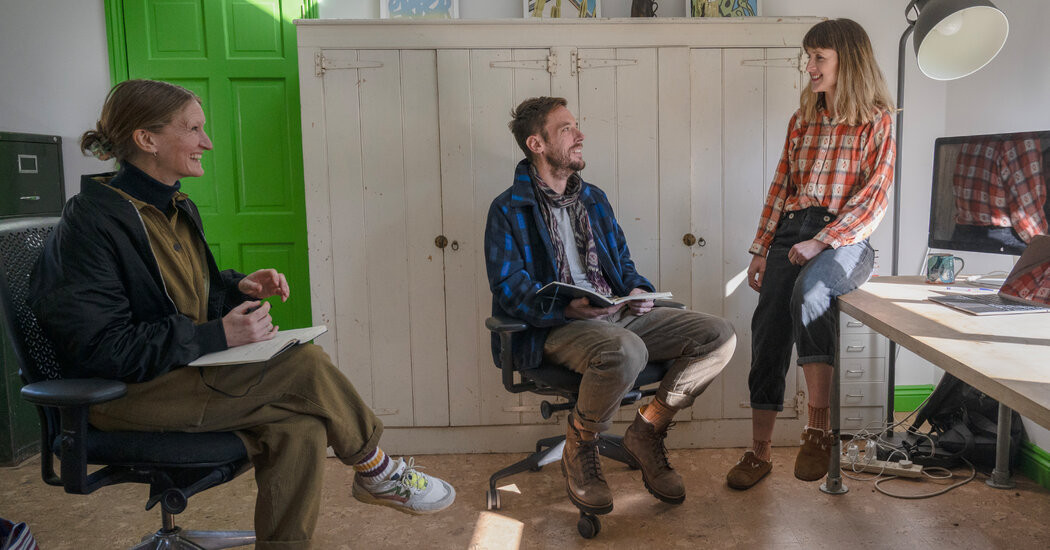

In Britain, amid growing evidence of harm to young people from extreme content online, a “Smartphone Free Childhood” campaign is going viral.
The idea of getting her eldest child a smartphone had long felt inevitable, said Daisy Greenwell. But by early last year, when her daughter was 8 years old, it filled her with dread. When she talked to other parents, “everyone universally said, ‘Yes, it’s a nightmare, but you’ve got no choice,’” recalled Ms. Greenwell, 41.
She decided to test that. A friend, Clare Fernyhough, had shared her concerns about the addictive qualities of smartphones and the impact of social media on mental health, so they created a WhatsApp group to strategize. Then Ms. Greenwell, who lives in rural Suffolk, in the east of England, posted her thoughts on Instagram.
“What if we could switch the social norm so that in our school, our town, our country, it was an odd choice to make to give your child a smartphone at 11,” she wrote. “What if we could hold off until they’re 14, or 16?” She added a link to the WhatsApp group.
The post went viral. Within 24 hours the group was oversubscribed with parents clamoring to join. Today, more than 124,000 parents of children in more than 13,000 British schools have signed a pact created by Smartphone Free Childhood, the charity set up by Ms. Greenwell, her husband, Joe Ryrie, and Ms. Fernyhough. It reads: “Acting in the best interests of my child and our community, I will wait until at least the end of Year 9 before getting them a smartphone.” (Year 9 is equivalent to the American eighth grade.)
The movement aligns with a broader shift in attitudes in Britain, as evidence mounts of the harms posed to developing brains by smartphone addiction and algorithm-powered social media. In one survey last year the majority of respondents — 69 percent — felt social media negatively affected children under 15. Nearly half of parents said they struggled to limit the time children spent on phones.
Meanwhile the police and intelligence services have warned of a torrent of extreme and violent content reaching children online, a trend examined in the hit TV show Adolescence, in which a schoolboy is accused of murder after being exposed to online misogyny. It became Britain’s most watched show, and on Monday, Prime Minister Keir Starmer met with its creators in Downing Street, telling them he had watched it with his son and daughter. But he also said: “This isn’t a challenge politicians can simply legislate for.”